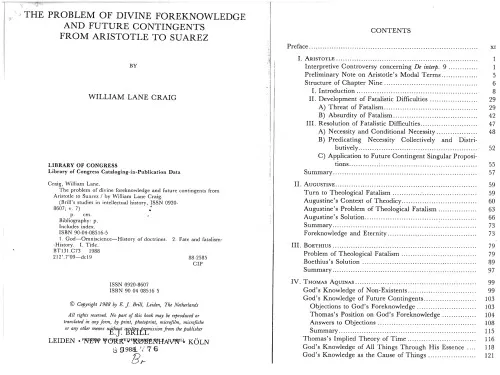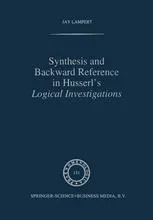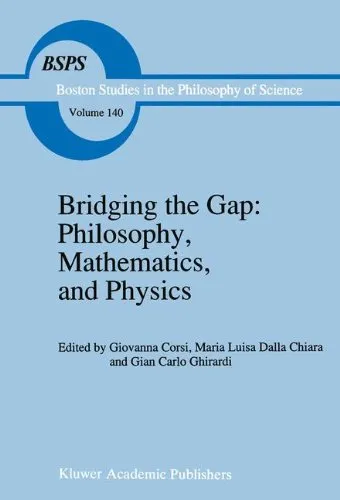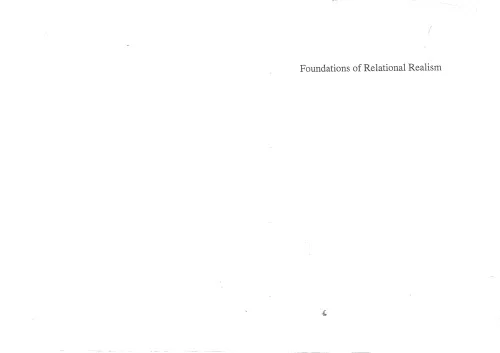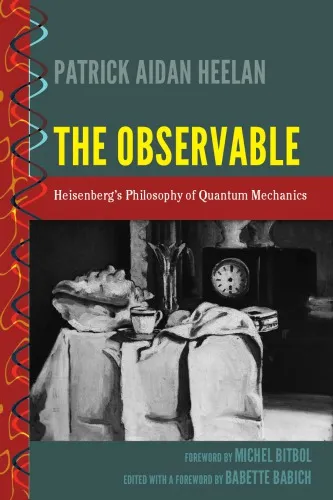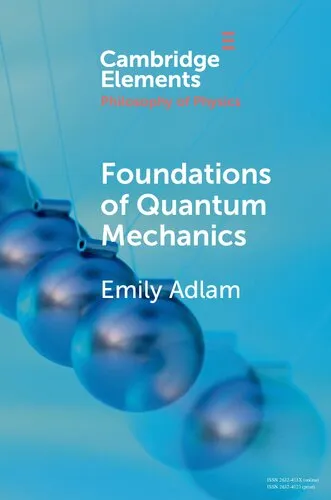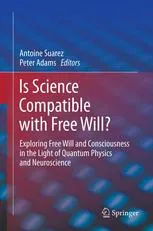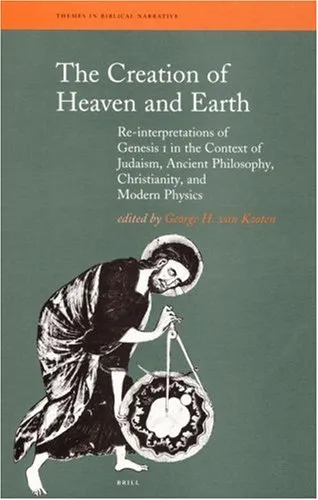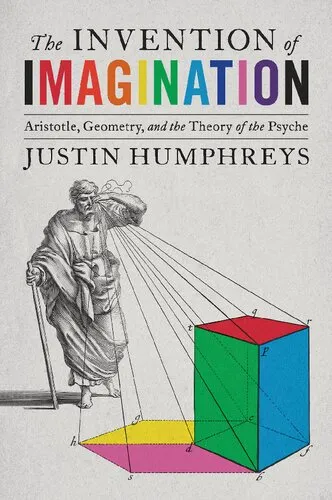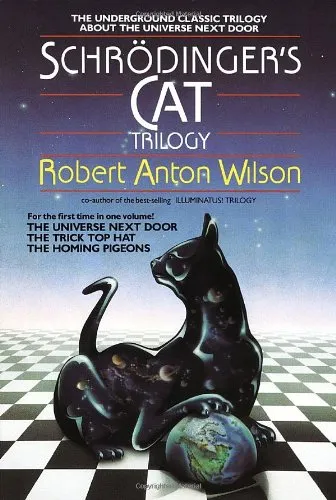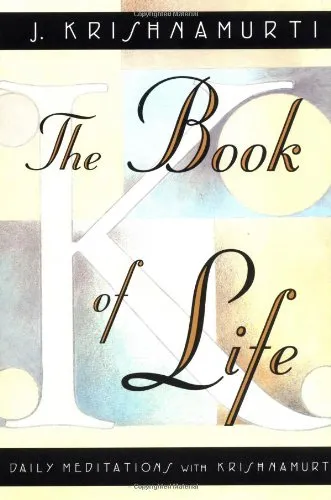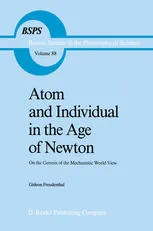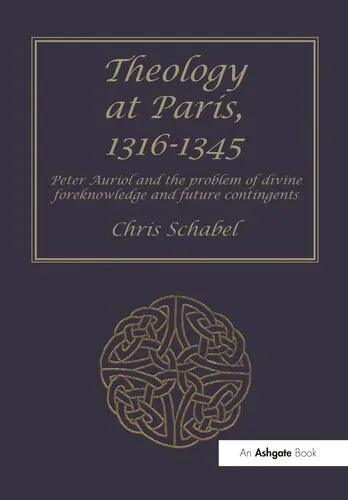The Problem of Divine Foreknowledge and Future Contingents from Aristotle to Suarez
4.5
بر اساس نظر کاربران

شما میتونید سوالاتتون در باره کتاب رو از هوش مصنوعیش بعد از ورود بپرسید
هر دانلود یا پرسش از هوش مصنوعی 2 امتیاز لازم دارد، برای بدست آوردن امتیاز رایگان، به صفحه ی راهنمای امتیازات سر بزنید و یک سری کار ارزشمند انجام بدینکتاب های مرتبط:
مقدمهای بر کتاب "The Problem of Divine Foreknowledge and Future Contingents from Aristotle to Suarez"
کتاب "The Problem of Divine Foreknowledge and Future Contingents from Aristotle to Suarez" اثری عمیق و تاثیرگذار از من، ویلیام لین کریگ، است که به یکی از مسائل مهم در فلسفه دین و متافیزیک میپردازد؛ یعنی مسئله دانش پیشین الهی (Divine Foreknowledge) و شرایط ممکن آینده (Future Contingents). این موضوع که سابقهای طولانی در تاریخ فلسفه دارد از زمان ارسطو تا فرانسیسکو سوارز در اندیشههای متفکران برجسته مورد بررسی قرار گرفته است. هدف اصلی این کتاب بررسی مفصل این مسئله در چارچوب تاریخی و ارائه تحلیلهایی است که بتواند پاسخهای قانعکنندهای به پرسشهای چالشبرانگیز مرتبط با سازگاری علم پیشین خداوند و آزادی انسانی ارائه دهد.
خلاصهای جامع از کتاب
این کتاب در فصلهای مختلفی نگارش شده که هر فصل به بررسی یکی از متفکران بزرگ و دیدگاههای آنها در مورد مسئله دانش پیشین الهی و شرایط آینده اختصاص دارد. این مسئله نظریهای فلسفی-الهیاتی است که از زمان ارسطو کلید خورده، جایی که وی برای نخستین بار پرسشهایی درباره گزارههای مربوط به آینده و سازگاری آنها با احتمالات شخصی و آزادی بیان مطرح کرد.
در فصلهای اولیه، به نظریات ارسطو پرداخته میشود که مناقشات بزرگی در مورد آیندهنگری ایجاد کرد. سپس به اندیشمندان مدرن اولیه، همچون توماس آکوئیناس و جان دانس اسکوتوس، میپردازیم که تلاش داشتند دانش الهی را با آزادی اراده انسانی تطبیق دهند. نویسنده همچنین نظریات سوارز، فیلسوف اسپانیاییِ قرن شانزدهم و یکی از تاثیرگذارترین شخصیتهای مکتب "School of Salamanca"، را به صورت دقیق بررسی میکند تا مشخص کند چگونه وی از چارچوب منطقی برای حل این مسئله استفاده کرد.
نکات کلیدی کتاب
- بررسی دقیق تاریخچه مسئله دانش پیشین الهی از ارسطو تا سوارز.
- تحلیل واژه "Future Contingents" و بررسی رابطه آن با آزادی اراده.
- ارزیابی راهحلهای مختلف ارائهشده برای سازگاری علم الهی و تصمیمهای انسانی.
- کاوش در نقش فلسفه منطقی و الهیات در پاسخ به پارادوکسهای مرتبط با علم الهی.
جملات معروف از کتاب
"مسئله دانش پیشین الهی از زوایای مختلف، نهتنها متافیزیکی بلکه اخلاقی است، زیرا کلید حل آن در ارتباط آزادی انسان و علم مطلق خداوند نهفته است."
"ارسطو درست معتقد بود که آینده تحت تأثیر امکان اتفاقات غیرمنتظره است، اما آیا چنین دیدگاهی با ایده خداوندی که همه چیز را پیشاپیش میداند سازگار است؟"
چرا این کتاب مهم است؟
این کتاب برای دانشجویان، پژوهشگران و علاقهمندان به فلسفه دین و الهیات اهمیت ویژهای دارد، زیرا یکی از دغدغههای اصلی در فلسفه کلاسیکی و متافیزیک را مورد بررسی قرار میدهد. کتاب حاضر نهتنها تاریخی جامع از اندیشههای مرتبط با دانش پیشین الهی ارائه میکند، بلکه خواننده را قادر میسازد مفاهیم پیچیده را در ارتباط با آزادی اراده و شرایط آینده به زبان سادهتر درک کند. همچنین تحلیل دقیق و روشنگرانه آن بسیاری از پارادوکسها و سوالاتی را که هنوز در فلسفه مدرن معوق باقی ماندهاند، روشن میسازد.
این اثر، پلی ارتباطی میان اندیشه کلاسیک فلسفی و چالشهای مدرن در حوزه الهیات ایجاد میکند. در دنیای امروزی که مباحثی نظیر واسطهگری دین و علم در جهت تبیین مفهوم خداوند و انسان مورد توجه است، این کتاب بهعنوان منبعی کلیدی به درک بهتر این مسائل کمک میکند.
Introduction
"The Problem of Divine Foreknowledge and Future Contingents from Aristotle to Suarez" by William Lane Craig offers an in-depth exploration of one of the most profound and enduring questions in philosophy and theology: How can divine omniscience, particularly God's foreknowledge of future events, be reconciled with human free will? This subject has perplexed scholars throughout history and traverses the domains of metaphysics, logic, and theology. In this book, Craig meticulously traces the development of thought around this issue from the ancient world through the Middle Ages, highlighting the dynamic interplay of philosophical and theological insights that have shaped the discussion.
While the title may evoke the image of a highly specialized academic work, this book provides invaluable insights to anyone intrigued by the intersections of logic, theology, and human nature. Craig not only engages with profound questions about foreknowledge but also brings clarity to the complex philosophical developments that have occurred across centuries. This introduction serves as a primer to guide readers through the key themes, arguments, and takeaways presented in the book. Let’s delve into the depth of this essential study.
Detailed Summary of the Book
The book opens with a foundational exploration of Aristotle's pioneering work on the logical problem of future contingents, as presented in his celebrated work De Interpretatione. Aristotle wrestled with the dilemma of whether statements about future events, such as "There will be a sea battle tomorrow," possess truth values prior to their occurrence. This debate laid the groundwork for centuries of philosophical inquiry into how future events can remain contingent while their truth values are seemingly predetermined by divine foreknowledge.
The journey continues through the intellectual traditions of the late antique and medieval periods, as key thinkers like Boethius, Augustine, and Aquinas sought to harmonize Christian theology with Aristotelian logic. These thinkers grappled with reconciling divine omniscience, which includes knowledge of future free actions, with the contingency necessary for free will. Craig brings particular focus to the ingenious contributions of medieval scholastics and examines the philosophical frameworks they developed to resolve this tension.
The narrative reaches its culmination in Suarez, one of the last major contributors to the Scholastic tradition. Suarez's extensive treatment of the problem encapsulates centuries of debate while offering fresh insights that resonate even today. Craig’s analysis takes into account Suarez’s nuanced understanding of divine concurrence, contingency, and causality, providing clarity to his complex argumentation.
What distinguishes Craig's work is not just the comprehensive historical overview but also his critical evaluation of the philosophical coherence and theological implications of each thinker’s position. By the book’s conclusion, readers are equipped with a deeper appreciation of the enduring mystery surrounding divine foreknowledge and the profound implications it holds for metaphysics, theology, and human freedom.
Key Takeaways
- Aristotle's dilemma regarding future contingents initiated centuries of philosophical debate on truth and time.
- Christian theologians like Augustine and Aquinas adapted Aristotelian philosophy to accommodate divine foreknowledge within the framework of free will.
- Scholastic arguments, particularly those of Suarez, represent the apex of medieval attempts to reconcile human freedom with divine omniscience.
- Craig’s critical analysis offers fresh insights into how historical perspectives can inform ongoing debates in philosophy and theology.
- The book emphasizes the necessity of integrating logical rigor with theological insight when addressing metaphysical problems.
Famous Quotes from the Book
“The problem of divine foreknowledge and future contingents remains one of the most enigmatic challenges to human reason, requiring both intellectual rigor and theological humility to approach its solution.”
“The question of how future contingent events can be known with certainty by an omniscient being transcends time, occupying the intersection of logic, metaphysics, and faith.”
Why This Book Matters
This book holds significant relevance for anyone interested in the intersections of philosophy, theology, and logic. By tracing the development of thought from Aristotle through Suarez, William Lane Craig provides a comprehensive and enlightening history of ideas that are still influential in contemporary philosophical debates. For scholars and students, the book serves as a rigorous study of the concepts of time, truth, and causality. For theologians, it’s a vital resource for reconciling doctrinal tenets like divine omniscience with the reality of human freedom.
Craig’s work also matters because it highlights how historical philosophical debates continue to inform and challenge modern thinking. Whether one is grappling with issues of determinism, the nature of causality, or the metaphysical underpinnings of divine attributes, this book provides the tools and insights necessary for a deeper understanding of these profound topics. It crosses disciplinary boundaries, fostering dialogue between theology, philosophy, and even the sciences that explore concepts of time.
In summary, "The Problem of Divine Foreknowledge and Future Contingents from Aristotle to Suarez" is more than a historical account; it is an invitation to engage in rigorous, meaningful inquiry into some of the deepest mysteries of existence.
دانلود رایگان مستقیم
شما میتونید سوالاتتون در باره کتاب رو از هوش مصنوعیش بعد از ورود بپرسید
دسترسی به کتابها از طریق پلتفرمهای قانونی و کتابخانههای عمومی نه تنها از حقوق نویسندگان و ناشران حمایت میکند، بلکه به پایداری فرهنگ کتابخوانی نیز کمک میرساند. پیش از دانلود، لحظهای به بررسی این گزینهها فکر کنید.
این کتاب رو در پلتفرم های دیگه ببینید
WorldCat به شما کمک میکنه تا کتاب ها رو در کتابخانه های سراسر دنیا پیدا کنید
امتیازها، نظرات تخصصی و صحبت ها درباره کتاب را در Goodreads ببینید
کتابهای کمیاب یا دست دوم را در AbeBooks پیدا کنید و بخرید
1251
بازدید4.5
امتیاز0
نظر98%
رضایتنظرات:
4.5
بر اساس 0 نظر کاربران
Questions & Answers
Ask questions about this book or help others by answering
No questions yet. Be the first to ask!
